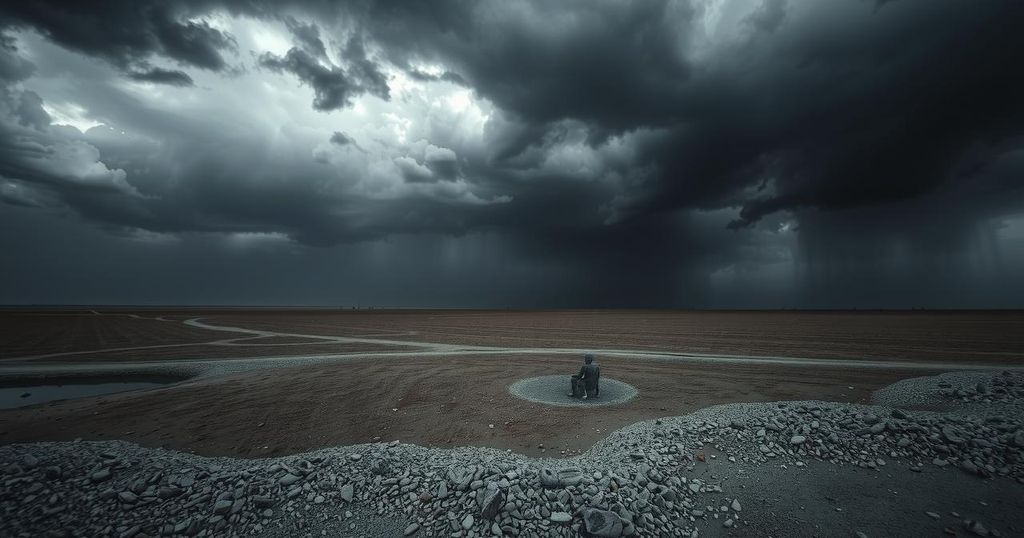The arrest of South Sudan’s First Vice President Riek Machar has heightened fears of renewed conflict, as tensions between him and President Salva Kiir escalate. The United Nations warns that this event jeopardizes peace efforts and may lead to widespread violence in the region, underscoring the importance of dialogue and international oversight.
The recent arrest of South Sudan’s First Vice President, Riek Machar, signifies a dramatic escalation in the national conflict. The United Nations has expressed deep concern that this event places the nation on the verge of widespread violence. Machar was taken into custody from his residence in Juba by a contingent of 20 armed vehicles, amplifying tensions within a country still recovering from a brutal civil war that claimed over 400,000 lives between 2013 and 2018.
The diminishing power-sharing agreement between President Salva Kiir and Machar poses a significant threat of reigniting past hostilities. A statement from Machar’s party condemned the unconstitutional actions of government officials, detailing that his security personnel were disarmed and he was presented with an arrest warrant on unspecified charges. Reports indicate plans to relocate Machar following his detainment.
UNMISS leader Nicholas Haysom cautioned that the event might precipitate further conflict within the country, emphasizing that violations of the 2018 peace agreement could severely impact both South Sudan and the surrounding region. Since its independence in 2011, South Sudan has grappled with widespread poverty and instability following the implementation of the peace deal.
Analysts suggest that President Kiir has been working to politically marginalize Machar for months. This includes a series of cabinet reshuffles and the arrest of over 20 of Machar’s allies within the government and military. Violence has escalated, particularly in Upper Nile State, where clashes have occurred between loyalists of the two leaders. Machar’s military faction condemned recent attacks on military bases as acts of terrorism.
Concerns over the deteriorating political climate have heightened among civilians in Juba. With sentiments of impending warfare, residents express the yearning for peaceful dialogue over armed conflict. Despite Kiir’s public commitment to restoring peace, the ongoing violent confrontations present a stark contradiction to these assertions.
International observers have sounded alarms over the escalating situation, with several countries reducing staff in Juba’s embassies and urging citizens to evacuate. Warnings indicate that any outbreak of extensive violence could lead to a chaotic and decentralized conflict, difficult for leadership to control.
The arrest of Riek Machar has escalated tensions in South Sudan, raising fears of renewed conflict in a nation already ravaged by past wars. The ongoing power struggles between Machar and President Kiir threaten the fragile peace established in previous years. With international concerns mounting and violent clashes erupting, the stability of South Sudan remains precarious, necessitating urgent dialogue and intervention from global powers to avert further escalation.
Original Source: www.news.com.au




